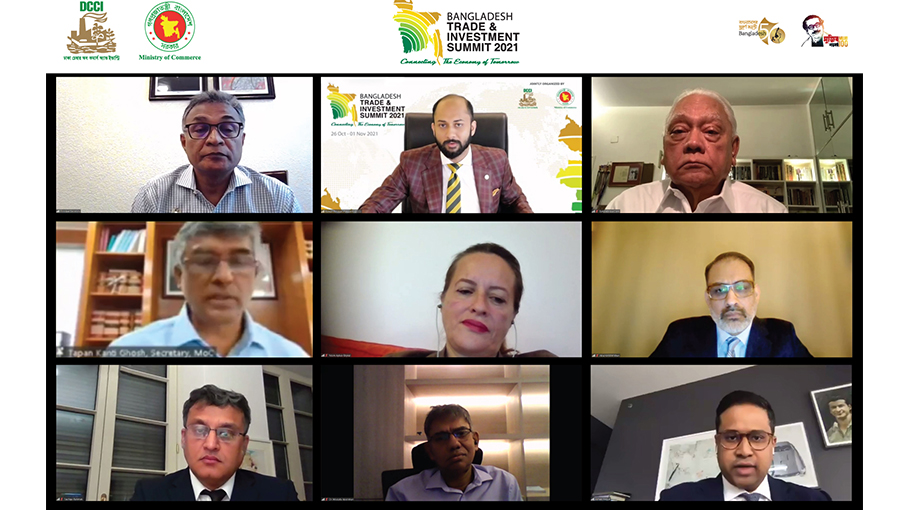Private sector’s contribution to GDP reflects its strength

Principal Secretary to the Prime Minister, Dr. Ahmad Kaikaus on Thursday said 81% of the GDP comes from the private sector reflects the strength of its vibrancy.
“We have to facilitate private sector and have to make a strong bondage between the public and private sector as private sector plays the major role in the economic transformation in the country. Entrepreneurs of Bangladesh are very hard working and resilient”, he said.
He was addressing a webinar on “LDC graduation of Bangladesh: Transformation and preparedness” as chief guest, jointly organized by Ministry of Commerce and Dhaka Chamber of Commerce & Industry (DCCI) on the 3rd day of Bangladesh Trade & Investment Summit.
DCCI President Rizwan Rahman chaired and moderated the session.
Read more: BBS to provide quarterly GDP data
Dr. Kaikous also said that in the power sector of Bangladesh most of the entrepreneurs are from local. He also said that government is always willing to listen the problems private sectors facing and very much accommodative to solve those.
Syed ManzurElahi, Chairman, Apex Group and former Adviser to the Caretaker Government,
Tapan Kanti Ghosh, Secretary, Ministry of Commerce, Abul Kasem Khan, Chairperson, BUILD, Taufiqur Rahman, Board Member, World Trade Organization joined the webinar as panelists among others.
While addressing, Syed Manzur Elahi said that many of us are always talking about export diversification, but it is not happening in reality.
He said that we have to create jobs that helps alleviate poverty and it is the duty of private sector to create jobs. For creating jobs, country needs industries. Due to our skill shortages, thousands of foreign workers are working in Bangladesh and remit about USD 5 billion every year. Leather sector is a highly labour intensive, capital intensive and this sector has a huge scope of technology adaptation.
Tapan Kanti Ghosh, Secretary, Ministry of Commerce in his introductory remarks said every graduating economy undergoes a transitional process with a deep aspiration of renewed economic journey. Moderator of the session, Rizwan Rahman, President, DCCI said technology transfer is no longer a choice but a necessity now.
He said Bangladesh’s economic condition is quite resilient and progressive that after the graduation, the country will be able to make its position stronger. But before that the first and foremost thing is to ensure product diversification in the export basket and technology adoptation as well as domestic market development, he said.
Abul Kasem Khan, Chairperson, BUILD underscored the importance of job creation, expanding economic freedom, policy reforms and building new areas of competitiveness.
Yesim Baykal, Programme Management Officer, UN Technology Bank for LDC said that LDC countries have to strengthen their capacity. She said that UN Technology Bank has been assessing the areas where Bangladesh needs technological cooperation.Taufiqur Rahman, Board Member, World Trade Organization said Bangladesh has achieved the threshholds in a good manner. “We have a strong foundation of economy”. Bangladesh has shown its resilience event in the pandemic time. Bangladesh is the top exporter in the LDC group.
Dr. Mostafa Abid Khan, former Member of Bangladesh Tariff and Trade Commission urged for quality education and research.




